THE PATH TO HARMONY BETWEEN ECONOMY AND ECOLOGY: A CULTURAL CHALLENGE
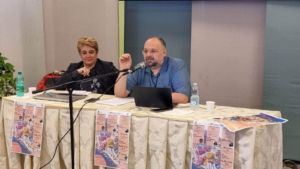
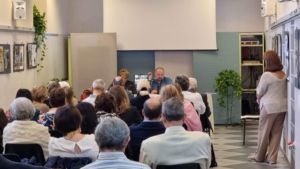
In the splendid setting of Procida, the Italian Capital of Culture, the Meic organized the national conference, hosted by the Campania Region: “The path to harmony between economy and ecology: a cultural challenge“.
The conviction of the intimate relationship between the ecological and social crisis pushes us to face this cultural challenge, with the intention to investigate the categories of Beauty, Ethics, Economy and Care, “subversively” reinterpreted as a “pulchritudinis- latina” (beauty-attractiveness) way of faith and human being. The environmental crisis of the planet is now increasingly evident. For the first time, the era of the Anthropocene is clear: men exert an influence so marked and extensive as to undermine the ecological balance of the planet. Therefore, there are urgent reasons to affirm a serious ecological approach that also becomes a social approach, capable of listening to the cry of the earth as well as that of the poor. There is, in fact, an intimate relationship between ecological and social crises. And the common good is an inseparable aspect of integral ecology, which can be fostered and guaranteed by “a new economy that is more attentive to ethical principles”, capable of looking at people’s real quality of life.
The MEIC wanted to continue this analysis, the fourth of a long road in eight years, on the guiding thread of Beauty, understood as an antidote to banality, among the great evils of our time, so that men know how to return, overcoming the logic of possession and domination, to recognize oneself.
Three reports – “The beauty of an ethical subversion for an economy capable of caring”; “From contemplation to caring for the common home: a look that becomes action”; “A sustainable and inclusive economy. New business models”
In our time, the love of Beauty has emerged again and with force, stated on the first-day prof. Foglizzo, however, is seen as a driving force for development and the economy. Therefore, a means, not an end, to achieve what is confirmed as the supreme value of our society: profit. Beauty is being used to do business, to win. The benefit itself is not the problem, but rather what one is willing to do for the benefit. If Beauty is only instrumental, and if another means an alternative to making a profit were ever found, this could mean that Beauty becomes expendable and therefore negotiable. Even more serious is the logic of approaching biodiversity, which is Beauty itself. But instead, they are considered as a reserve of economic resources that could be exploited. That is why the real value of things is not taken into consideration since the profit obscures the value.
It is not the utilitarian consideration that is wrong, as no. 32 of the L.S.
It is correct to consider Beauty as a resource, but it cannot be the only one. Otherwise, we are facing a form of reductionism that betrays the richness of reality, therefore it is polysemy, denying that things can be seen in different ways, within different relationships. And the loss of this biodiversity cuts not only the relationship between the different species but also the relationship with God. This problem must be seen within a complex network of relationships, that the two engines of our contemporary world, finance related to technology they can’t see.
Thinking that you can reduce everything to one, through product research, you end up solving one problem by creating others. Here is the root of the problem with which we struggle: the technocratic paradigm, together with the way in which humanity has assumed technology and its development together with a homogeneous and one-dimensional paradigm that erases all plurality and polysemy. Nature has -on the other hand- its own meaning, its own laws, which deserve to be respected, since reality is not shapeless and totally manipulable, as the rule of Roman law on the property would want: “jus utendi et abutendi”, that is to say , the owner can do whatever he wants, including destroying his property, because he believes that he is totally open to manipulation. This deceptive style of interpretation of the world and of the human being opens the door to the throwaway culture, since it leaves room for a way of understanding the human being as a consumer good that can then be discarded. Exactly exodus! This explains how the lack of ethics in the economy and, even more, in finance, represents in the encyclical the extreme point at which this dynamic of domination and profit extraction becomes evident, the extreme point of contagion. Even if today you are no longer totally unbalanced about the speculative dimension of virtual wealth, it does not mean that the world of derivatives and casino capitalism is over. Along with this, Foglizzo insists that there are positive signs, not because of the good heart of businessmen but because of the course of things in our time: the wise investor who wants to preserve his own value over time, today aims to invest in companies no longer dealing with fossil fuels, and thus the real driver of a transition from supporting fossil energy finance to alternative energy, by those who have clear responsibilities in the world of the real economy and are worried about the long term. It is not out of good heart but only because “it is not convenient”. It is no coincidence, the Pope argues, that environmental degradation is linked to ethical degradation, and also to Beauty because environmental degradation is a form of denial and destruction of Beauty.
And the speaker finds subversive a Pope to whom even the European Community, usually not very tender towards the Church, has tried to award a prize for the courage to promote more inclusive economic models, to move from an economy that aims at income and profit, to a social economy that invests in people by creating jobs and qualifications. A fundamental concept built by the Pope is that of economic ecology, which is precisely the counterweight of the technocratic paradigm combined with profit because economic ecology is capable of inducing us to consider reality in a broader way; if reductionism is reduced, economic ecology is expanded, exactly what we need.
In other words, new models of progress: we need to change the global development model, which implies reflecting responsibly on the meaning of the economy and its goals. The Beauty of nature, like that of art, is free, goes through reality, and takes us beyond, together with the discernment of the signs of the times and the importance of contemplation.
Finally, the last “subversive” step is the impulse to transfer work from the paradigm of exploitation, be it the exploitation of workers or the exploitation of the environment, to that of care, rediscovering that work is related between people and in relationship with the environment and that no relationship can exist if care is not practiced.
The Saturday morning with Prof. Muggianu opens the reflection on the sense, the meaning, and the importance of the limit. A concept that we reject, because in our sense it is a diminutive, the limit appears to us as a subtraction, as something that is missing. In reality, much more simply, the limit is essential to define us: to be something, it is necessary that we are not something else. The context of global culture in which we find ourselves pushes us to consider that the limit does not exist, or in any case avoids it or rejects it. This is very interesting: determining rejection as something that does not interest us. Instead, we are interested in waste, because it is the element with which we violate the planet. And here we come to say that the relationship between ecology and economy is a difficult, burdensome relationship, there seems to be a basic discrepancy between economic and ecological development. However, the root is common, the substantial social nucleus for both, the capacity for reflection and the expression of man, the home. After all, we are so interconnected that it is no longer given to us to leave room for linguistic subtleties, but even changing our gaze, our perspective, is not enough, we need a true and proper conversion of the heart. The conversion that must be desired, must be sought.
After a long look at the natural catastrophes that have affected the country in recent months, placing us before a seasonal cycle that is no longer regulated, according to prof. Muggianu makes it clear that “we need to look at these things to become painfully aware of transforming what happens in the world into personal suffering as well as to recognize what contribution each one can make” (L.S.19). Without the involvement of the heart, of our affective dimension, we cannot give our contribution from ourselves. We have mistreated the planet as if everything were inexhaustible. We have polluted all the fundamental elements: air, water, earth, sky. Meanwhile, inversely proportionally, those who pollute exploit more and pay less for the effects of climate change, and vice versa for the most overexposed populations, with whom the poverty gap widens. And the ecological debt is generated that in reality the rich countries do not pay as necessary. Ecological debt leads to appalling inequality: we give inordinate importance to the financial debt that exists between countries and totally ignore the ecological debt caused by the damage caused by rich countries. All this also leads to social pollution.
Faced with all this, the ecological transition neologism was created that insists on modifying the domain of technology, so profound as to have also produced an anthropological mutation of the ecological vision. In other words, the focus of the discourse is submerged in a mere process of technological reconversion that produces less pollution.
In order to return to the inclined plane in which we find ourselves against the current, a change of era will be necessary that can give space to listening and listening that is capable of caring. A concept of care is so essential to human life that it can question the very normative structure on which our society is based and, consequently, reshape its institutions. Openness to the need for a new solidarity that represents the concrete response to the interdependence of problems; to the promotion of an ethic of change that knows how to build a true social renaissance. In short, a conversion that knows how to overturn the mentality and the look.
Everything is related, and everything is connected is one of the pillars of Laudati Sì.
The multifaceted and interdisciplinary vision with which the defense of ecosystems, the preservation of biodiversity, and the management of global commons are read, cannot be separated from the issues of politics, the economy, migration, and social relations. The culture of care, unlike that of waste, presupposes the centrality of the human person.
The third and last intervention was that of the businessman Piccolo from Turin. His testimony is found in the realization of the daily work, shared with his employees in everything and also in the earnings, all the indications heard in the reports that preceded him. The need to care above all, employees, the environment through serious attention to the almost total recycling of waste, the needs of the most disadvantaged, both collaborating with Third Sector associations in the city of Turin like in Africa where, with a collaboration contract, they have helped a group of women to emancipate themselves in the cosmetics sector, to produce them and to supply shea butter to the Turin company for the realization of their products. In a word: ‘it can be done’. It can be produced ethically, earning just the right amount while doing our part to protect the planet.
Beauty, in addition to declining it in theoretical terms, must also be experienced. A concert and a visit to the marvelous host locations set the stage for the Conference.
Rosaria Capone
MEIC Italy
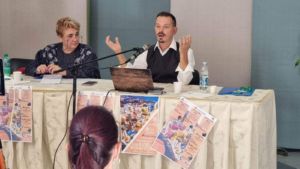
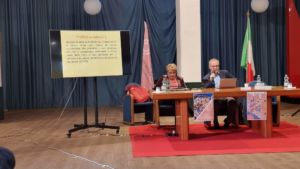

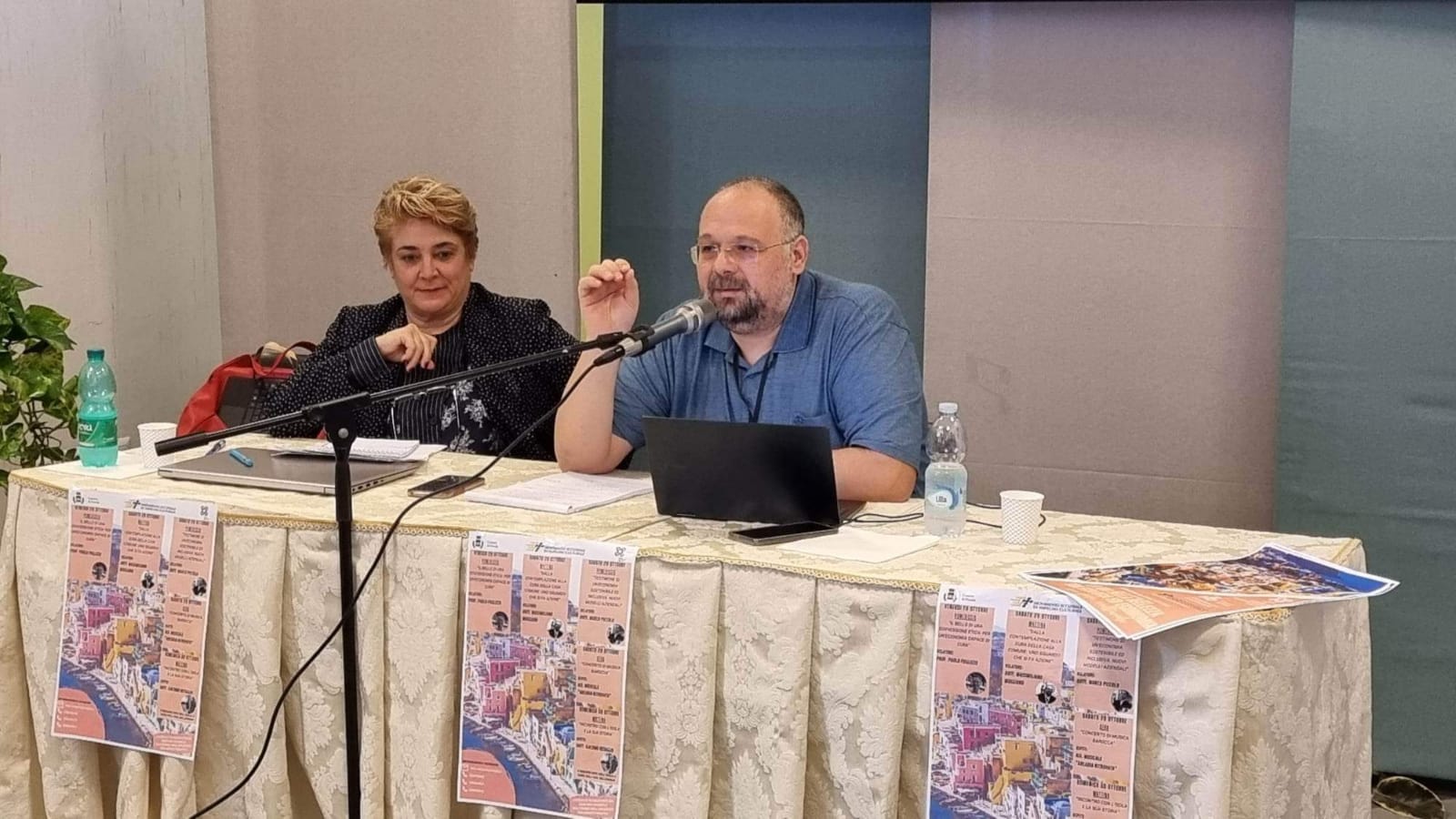
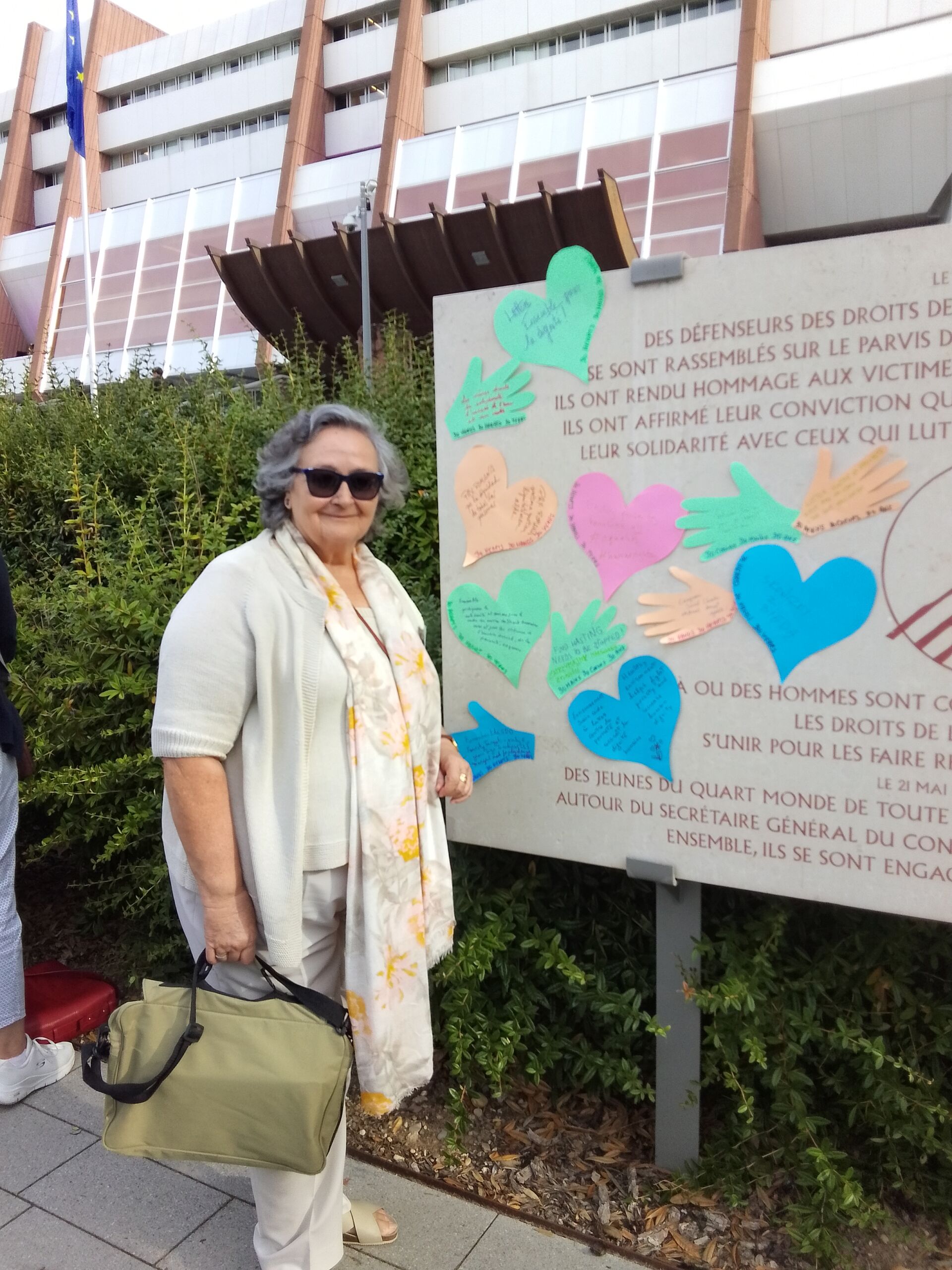
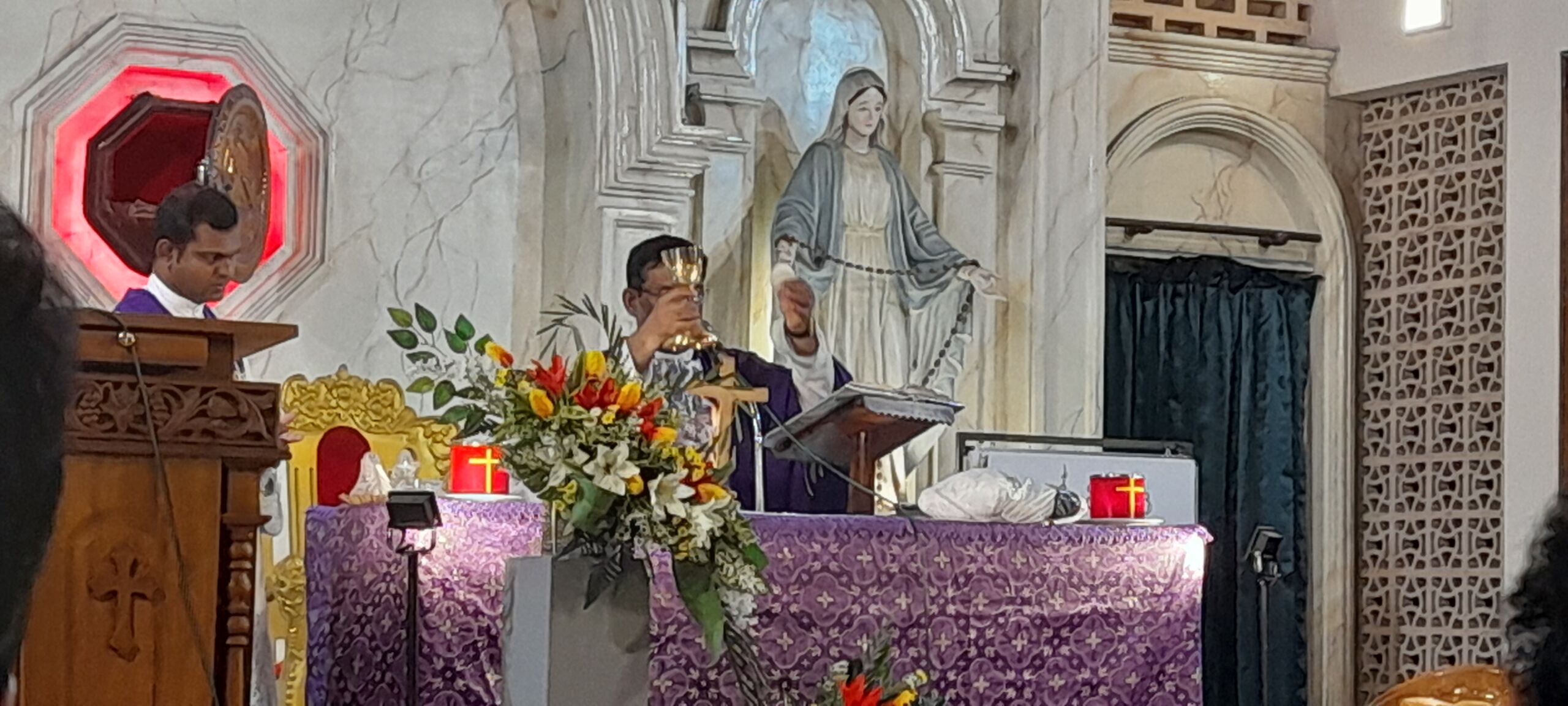
Leave A Comment
You must be logged in to post a comment.